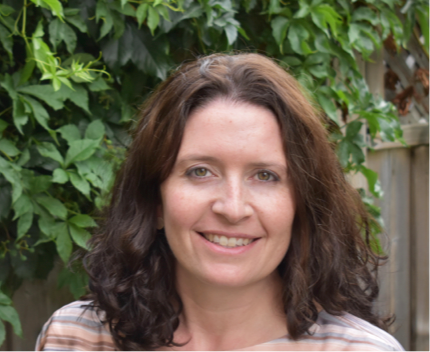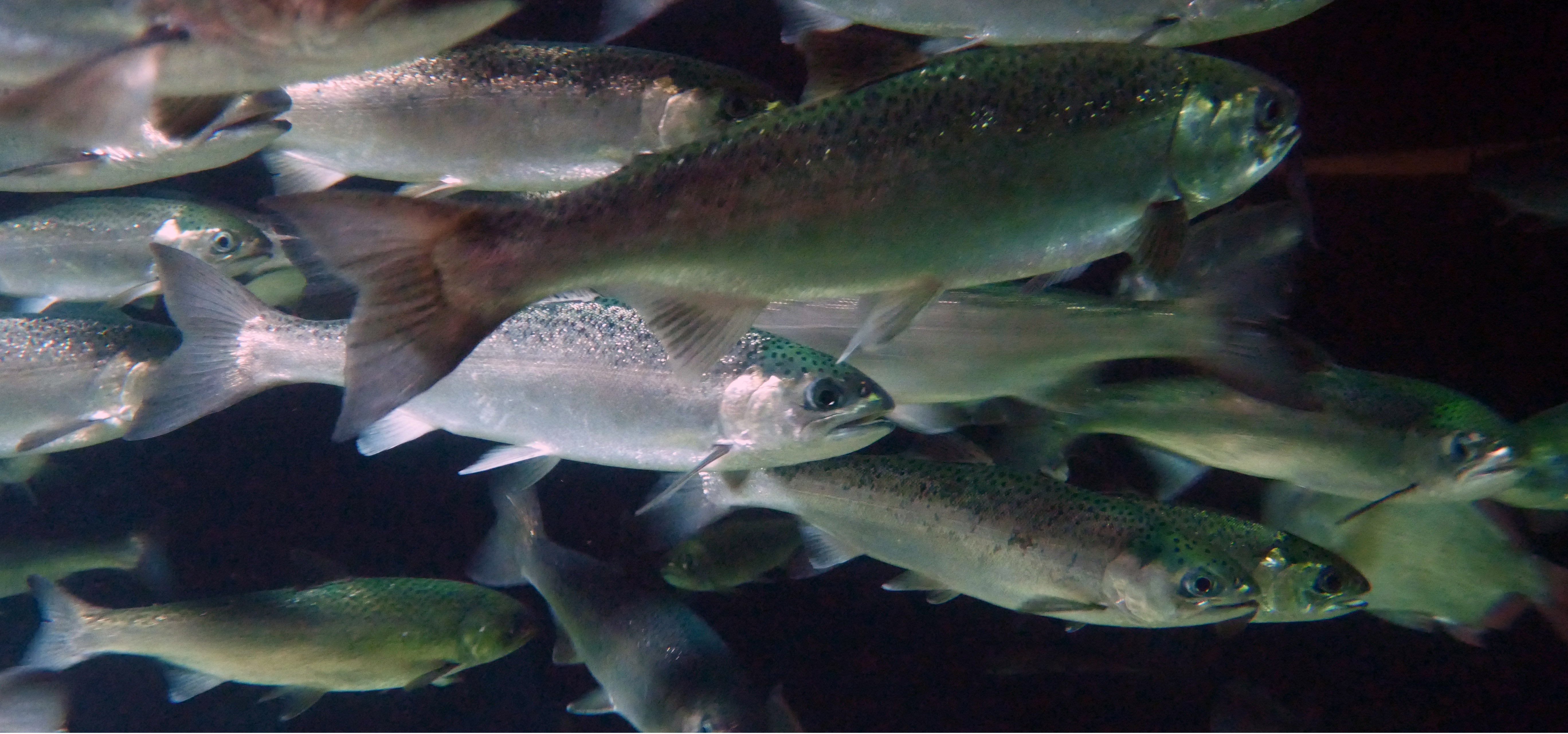Editor:
Brandon Sweet
University Communications
bulletin@uwaterloo.ca
Sexual violence response co-ordinator hired

"I am pleased to announce that Amanda Cook has joined the University of Waterloo as our Sexual Violence Response Coordinator," writes Associate Vice President, Human Rights, Equity and Inclusion Diana Parry in a memo distributed to campus today. "In this new role, Amanda will serve as a community resource to ensure appropriate response to sexual violence including complainants, respondents, witnesses and front-line service providers."
"Waterloo is committed to fostering a safe and respectful environment where the impact of sexual violence is understood and individuals affected receive support," says the associate vice-president's memo. "Policy 42 Prevention and Response to Sexual Violence was implemented in January 2017 and establishes the University’s commitment to the awareness and prevention of Sexual Violence and to a process for addressing complaints of Sexual Violence."
Amanda brings over 10 years’ experience to the Sexual Violence Response Coordinator role, having worked with Peel Children’s Centre both as a Child Witness Specialist and a Child and Family Clinician with the Sexual Abuse Treatment Program. As a Child Witness Specialist Amanda assisted in supporting child and youth victims to testify in criminal court, and provided information and support in navigating the criminal justice system. In the role of Clinician, Amanda provided trauma informed treatment to both child and youth survivors of sexual trauma, as well as for youth who had sexually offended.
Amanda has a BA in Sociology and a MA in Social Work, both from Wilfrid Laurier University. She grew up in Waterloo Region and is looking forward to becoming reacquainted with the area.
Get in touch with Amanda to learn more about her new role.
An update on pay equity at Waterloo
A message from Human Resources
Ontario’s Pay Equity Office recently notified the University that it will be reviewing our compensation practices for compliance with the Pay Equity Act, through their Monitoring Program. The Act requires the University to follow compensation practices that ensure employees in female job classes are paid at least as much as employees in male job classes of comparable value. Please see the Notice of Requirement to Achieve and Maintain Pay Equity posted to the Human Resources website.
The University issued its first plans for compliance on January 1, 1990 and has been committed to meeting pay equity requirements since the Act’s inception. With staff positions assigned to job grades through a job evaluation system, where the job is evaluated, not the person, gender does not factor in to pay decisions. A faculty pay equity review was recently conducted to ensure compliance; the results were communicated in August 2016 (for more information, please see the Daily Bulletin from August 19, 2016 entitled A step forward for equity).
Throughout the pay equity review, updates to the community will be provided as available. In the meantime, employees with questions or concerns should contact Director, Total Compensation Lee Hornberger at ext. 39188.
Salmon farmers adapt to climate change with help from a $4.4M collaboration

With sea surface temperatures in the North Atlantic Ocean already climbing, scientists are predicting Atlantic Canada’s $400 million salmon aquaculture industry could be wiped out within the next 25 years.
But a $4.4M collaboration between biologists at University of Waterloo, Memorial University and the Universities of Guelph and Prince Edward Island could be the key to helping the industry adapt with a superior salmon stock that can survive in higher water temperatures.
“Temperatures are already appraoching the upper limit. Even a rise of 2 degrees would be lethal to current salmon stocks,” says Brian Dixon, a professor in the Department of Biology. “Canada’s salmon fishing industry is going to feel the impact of climate change very soon - it’s now a race against time.”
Temperatures along the Canada’s east coast are predicted to jump between 2 and 4°C by 2040. The rise may seem small, but with it comes 25 per cent lower oxygen levels in the water, a condition known as hypoxia, as well as higher incidences of sea lice and other diseases.
Using the next generation of genetic sequencing and selective breeding techniques, the team wants to not only adapt the Atlantic salmon stock, but create new genetic and molecular tools that will help other aquaculture industries in the same boat.
The team will conduct a set of disease challenges meant to find more robust salmon families that can withstand the increased threats and stresses of higher temperatures, hypoxia, sea lice, bacterial kidney disease and amoebic gill disease. Once a stock gets infected with bacterial kidney disease, for example, it can take as long as a decade to recover.
Dixon, an expert in fish immunology and climate adaptation, will investigate how higher temperatures affect a fish’s immune response as well as their response to vaccines, a key tool for keeping stressed fish stocks healthy. He also plans to identify the genetic markers associated with improved physiological and immunological traits that can help the fish survive higher temperatures.
Link of the day
70 years ago: India gains independence
When and where
Quantum Cryptography School for Young Students, Friday, August 11 to Friday, August 18.
Ontario Mennonite Music Camp, Sunday, August 13 to Friday, August 25, Conrad Grebel University College.
UWRC Book Club presents The Baker’s Daughter by Sarah McCoy, Wednesday, August 16, 12:00 p.m., LIB 407.
IQC special seminar, "Chris Ferrie: Quantum Physics for Babies," Friday, August 18, 1:00 p.m., Mike & Ophelia Lazaridis Quantum-Nano Centre, Room 1502. Free registration.
Partial Solar Eclipse Viewing, Monday August 21, 1:00 p.m. to 4:00 p.m., Village 1 Green. Registration required to get eclipse glasses.
NEW - Computer Science seminar, “Network heartbeat traffic characterization,” Carey Williamson, University of Calgary, Monday, August 21, 2:30 p.m. to 3:30 p.m., DC 1331.
Retirement reception for Sgt. Peter Speek, Tuesday, August 22, 4:00 p.m., Federation Hall. RSVP to Alan Binns at ambinns@uwaterloo.ca.
Deadline for students to get “Fees Arranged,” Wednesday, August 23.
10th Annual St. Paul's Golf Tournament, Friday, August 25, 7:30 a.m. to 4:00 p.m., Glen Eagle Golf Club.
PhD seminar, “Projection free rank-drop steps,” Edward Cheung, David R. Cheriton School of Computer Science, Thursday, August 31, 2:00 p.m. to 3:00 p.m., DC 2310.
Fall Orientation, Sunday, September 3 to Saturday, September 9.
Fall Move-in begins, Sunday, September 3.
Labour Day, most University services and buildings closed, Monday, September 4.
Co-operative work term begins, Tuesday, September 5.
LGBTQ+ Making Spaces workshop, Tuesday, September 5, 12:30 p.m., NH 3318. Please register- Seating is limited.
WaterTalk: Data instead of concrete? Exploring the potential of digitalization in urban drainage, featuring Professor Max Maurer, Tuesday, September 5, 2:30 p.m., DC 1302.
Lectures begin, Thursday, September 7.
Feds Welcome Week, Monday, September 11 to Friday, September 15.
President and Senior Staff Luncheon, Monday, September 11, 12:00 p.m., Davis Centre Quad.
The Water Institute RBC Distinguished Lecture 2017 featuring Quentin Grafton, “Innovation, Incentives and Infrastructure in the Blue Economy,” Monday, September 11, 3:40 p.m., Crowne Plaza Grand Ballroom, Kitchener.
Waterloo Innovation Summit - Hacking the Future, Thursday, September 14 and Friday, September 15.
Deadline to submit nominations for the President's Community Impact Awards, Friday, September 15.
WaterTalk: Emerging Outcomes From a Cross-Disciplinary Doctoral Programme on Water Resource Systems, Friday, September 15, 2:30 p.m., DC 1302.
PhD oral defences
School of Public Health and Health Systems. Kristin Brown, "Narrowing the Knowledge to Action Gap: A Mixed Methods Exploration of the Implementation of Knowledge Exchange Strategies." Supervisor, Susan Elliott. On display in the Faculty of Applied Health Sciences, BMH 3110. Oral defence Thursday, August 17, 9:00 a.m., AHS 1686.
Mechanical & Mechatronics Engineering. Mohammad Pirani, "Reliable Vehicle State and Parameter Estimation." Supervisors, Amir Khajepour, Baris Fidan. On deposit in the Engineering graduate office, DWE 3520C. oral defence Thursday, August 17, 9:00 a.m., E5 3052.
Management Sciences. Abdelhalim Hiassat, "Resource Allocation Models in Healthcare Decision Making." Supervisors, Fatih Safa Erenay, Osman Ozaltin. On deposit in the Engineering graduate office, DWE 3520C. Oral defence Thursday, August 17, 10:00 a.m., MC 2009.
Computer Science. Ali Abedi, "Evaluating and Characterizing the Performance of 802.11 Networks." Supervisor, Tim Brecht. Thesis available from MGO - mgo@uwaterloo.ca. Oral defence Monday, August 21, 9:00 a.m., DC 2310.